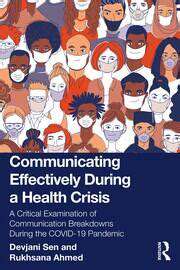The Immigration Process at Major Airports Explained
Visa Requirements and Exceptions
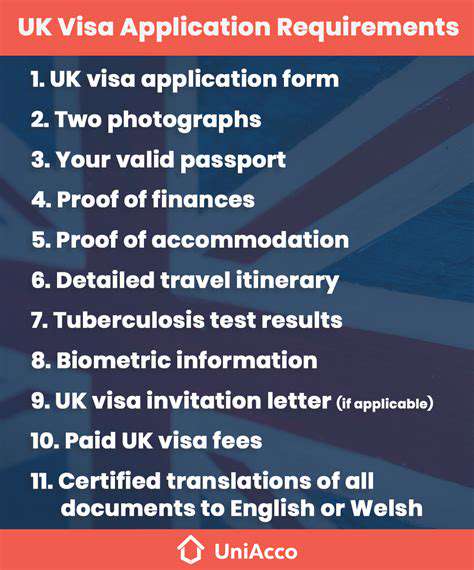
Visa Requirements for International Travelers
Travelers crossing international borders should thoroughly examine the visa prerequisites established by their destination country. These regulations are influenced by factors including citizenship, planned duration of stay, and travel objectives. Non-adherence to visa policies may lead to entry refusal, financial penalties, or forced repatriation. Initiating research and securing mandatory paperwork well before departure dates is strongly advised.
The visa acquisition process frequently proves intricate and lengthy. Applicants must compile supporting evidence, precisely fill out application forms, and arrange meetings at appropriate diplomatic missions. Documentation demands show substantial variation across different nations. Consulting the official portals of relevant embassies or consulates remains the most reliable method for obtaining current, accurate details.
Exceptions to Visa Requirements
Some passport holders qualify for exemption from standard visa protocols or may obtain visas upon arrival in select destinations. These special arrangements typically originate from international treaties and demonstrate considerable diversity. For instance, certain states permit brief tourist visits without visas for specific nationalities, while others mandate visas even for short connecting flights.
Additional exemptions might apply to individuals with distinctive credentials, such as diplomatic passport carriers or those attending sanctioned events like business summits. Conducting comprehensive research into these special provisions helps determine potential eligibility for simplified entry procedures.
Documentation and Supporting Materials
Visa petitions generally necessitate multiple supplementary records, including travel documents, lodging confirmations, flight schedules, and financial records. These materials validate the applicant's identity, travel purpose, and economic standing. Inaccurate or partial submissions can substantially impede application progress. Acquiring precise knowledge about destination-specific requirements and preparing documentation ahead of time proves essential.
The veracity and legitimacy of submitted paperwork carry paramount importance. Fabricating or distorting information may trigger serious legal consequences. Meticulously verifying all particulars and confirming document validity remains critical for successful visa processing.
Visa Processing Times and Fees
Authorization timelines fluctuate dramatically depending on the destination and individual circumstances. Some nations provide accelerated processing alternatives, usually involving supplementary charges. Recognizing these variations proves indispensable for effective travel scheduling. Accounting for potential bureaucratic delays when arranging itineraries represents a prudent practice.
Application costs also demonstrate significant disparity across jurisdictions. These payments are generally non-refundable, making advance fee verification advisable to prevent financial surprises. Early awareness of applicable charges facilitates accurate travel budgeting.
Visa Denials and Appeals
Rejections may occur for multiple reasons, including inadequate paperwork, factual misrepresentation, or security concerns. Denied applicants typically receive written explanations outlining refusal grounds. Comprehending these reasons proves valuable for rectifying shortcomings in subsequent applications.
Appeal mechanisms sometimes exist for contested decisions, often requiring supplemental information to address initial concerns. Seeking guidance from legal professionals or diplomatic staff regarding appeal procedures is recommended.
Handling Potential Delays and Issues
Understanding Potential Delays
Processing bottlenecks frequently occur during airport immigration procedures, and recognizing their common causes enables better preparation and expectation management. Contributing factors range from fluctuating flight schedules and unanticipated security measures to technical malfunctions in border control systems. Acknowledging the likelihood of holdups permits travelers to allocate additional time and reduce stress.
Pre-travel planning, including monitoring current airport conditions and projected wait periods, proves invaluable. Early awareness of potential complications allows passengers to anticipate and mitigate challenges, promoting smoother transitions.
Common Causes of Delays
Numerous elements can prolong immigration processing. Congestion at inspection stations, particularly during high-traffic periods, represents a primary contributor. Technical failures in border management infrastructure, including system crashes or operational faults, often create extended queues. Unpredictable circumstances like sudden passenger surges or airport operational disruptions further exacerbate delays. These combined factors frequently compromise border control efficiency.
Strategies for Managing Delays
Developing contingency plans for potential setbacks remains essential for stress-free travel. Allocating generous time buffers, especially during peak seasons, constitutes a fundamental strategy. Monitoring live flight and immigration queue data through official airport platforms provides valuable situational awareness. Staying informed about operational disturbances enables timely itinerary adjustments.
Importance of Patience and Communication
Maintaining composure and open dialogue proves critical during processing delays. Recognizing that some interruptions are inevitable helps travelers navigate situations more effectively. Engaging with airport personnel can yield important updates about current conditions and possible resolutions.
Preserving calm focus significantly impacts how individuals manage unexpected setbacks. Remembering that most delays are temporary and maintaining equanimity contributes to more positive experiences overall.
Preparing for Unexpected Issues
Anticipating potential complications like misplaced luggage or documentation problems reduces travel stress. Creating duplicate copies of critical documents including passports and visas serves as a sensible precaution. Travelers should also familiarize themselves with common documentation issues and develop response strategies.
Remaining composed and taking proactive measures helps address unforeseen challenges that may emerge during journeys, including communication difficulties or missing paperwork.
Utilizing Technology and Resources
Leveraging digital tools and available services greatly assists in navigating potential disruptions. Airport applications providing real-time updates about wait periods and operational issues offer valuable assistance. Many terminals maintain information counters and customer service representatives who can provide guidance during unexpected situations. Accessing these resources helps streamline processes and minimize inconvenience.
Staying connected to current information through reliable applications and seeking assistance from airport staff represent proactive approaches for effectively managing immigration-related challenges.
Checking Baggage and Customs Procedures
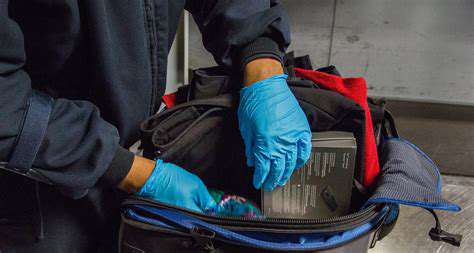
Checking Baggage Procedures
Before commencing travel, comprehending baggage check-in protocols ensures smoother transitions. Each airline maintains distinct rules and regulations that passengers must understand. Weight limitations for checked items frequently apply, with excess baggage often incurring supplemental fees. Confirming luggage compliance with dimensional and weight restrictions prevents airport complications.
Carriers typically specify permitted checked baggage quantities per traveler. Reviewing these guidelines beforehand avoids potential conflicts. Understanding size and weight parameters for each piece proves equally important, as these restrictions ensure safe, efficient cargo handling.
Customs Procedures for Checked Baggage
Border control measures for luggage aim to verify compliance with national import regulations. Knowledge of forbidden items and controlled substances prohibited in checked luggage is essential. Restricted articles often include weapons, specific pharmaceuticals, and certain commodities. These controls safeguard traveler security and national interests.
When checking baggage, separating critical documents or item-related materials from main luggage facilitates customs inspections. Preparedness to answer officials' questions about luggage contents demonstrates compliance with international trade standards.
Understanding Prohibited Items
Transporting forbidden objects in checked luggage may cause substantial delays and legal repercussions. Identifying prohibited materials is fundamental for trouble-free travel. Hazardous substances, weapons, and controlled drugs typically face strict prohibitions. Always verify destination-specific banned item lists.
Numerous nations enforce special regulations governing import/export of particular goods. Familiarity with these rules promotes seamless border crossings. This includes understanding regulations in both departure and arrival countries.
Documentation Requirements
Proper documentation for checked items remains vital for uninterrupted travel. Special paperwork is often mandatory for medications and specific goods. Reviewing destination country documentation prerequisites ensures compliance, typically involving customs declarations and supplementary forms.
Maintaining detailed luggage inventories proves beneficial. Such records assist in resolving discrepancies or queries during customs examinations and prove invaluable in cases of loss or damage.
Security Measures and Procedures
Airport security protocols for checked luggage protect travelers and aviation infrastructure. These measures are indispensable for maintaining travel safety. All checked items undergo security screening, potentially involving X-ray machines and detection technologies. Understanding these processes facilitates smoother baggage handling.
International Travel Considerations
Cross-border journeys involve specialized customs processes differing from domestic travel. Recognizing these distinctions is crucial for hassle-free international trips. Nations maintain unique import/export regulations. Researching specific rules for all visited countries is strongly recommended.
Regularly confirming current travel advisories and guidelines from destination authorities keeps travelers informed about potential customs procedure modifications. This proves particularly important for international travel where regulations often prove more complex.
Tips for a Smooth Immigration Experience
Understanding Pre-Departure Procedures
Comprehensive pre-travel preparation significantly enhances border crossing experiences. This involves careful attention to visa specifications, document organization, and destination-specific regulations. Methodical document collection—including passports, visas, and insurance—minimizes potential immigration delays and stress at international terminals.
Destination-specific requirement awareness remains paramount. Visa policies vary widely, and non-compliance creates substantial complications. Thorough research and embassy consultations help prevent unexpected issues.
Navigating the Airport Immigration Line
While immigration queues can appear daunting, calm preparedness proves invaluable. Familiarization with terminal layouts and appropriate immigration counters for one's nationality expedites processing. Keeping required documents easily accessible prevents unnecessary holdups. Efficient document presentation skills enhance the overall experience.
Anticipating common immigration officer questions about travel plans, visit purposes, and accommodation details builds confidence. This preparatory approach reduces anxiety and facilitates smoother interactions.
Handling Potential Delays and Issues
Unexpected immigration delays occasionally occur at any airport. Maintaining composure and cooperation proves essential in such scenarios. Clear, concise communication with officials about any concerns influences outcomes positively. Professional demeanor significantly impacts resolution processes.
Understanding the Importance of Documentation
Comprehensive documentation underpins successful border crossings. Ensuring passport validity throughout the stay and proper visa acquisition is fundamental. Carrying copies of critical documents—including flight details and accommodation confirmations—provides backups if originals are misplaced. Accuracy in all information provided to immigration personnel remains crucial for seamless processing.
Tips for a Positive Interaction with Immigration Officers
Constructive engagement with border officials eases the immigration process. Maintaining appropriate eye contact, speaking clearly and courteously, and respecting their time fosters positive exchanges. Providing complete, accurate information without omissions or misrepresentations ensures efficient processing. This proactive, respectful approach alleviates immigration-related stress.
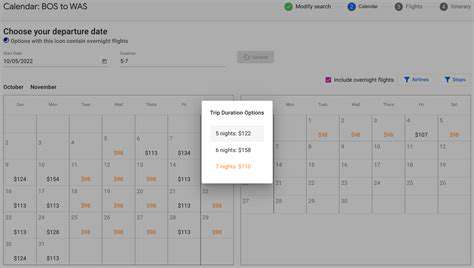
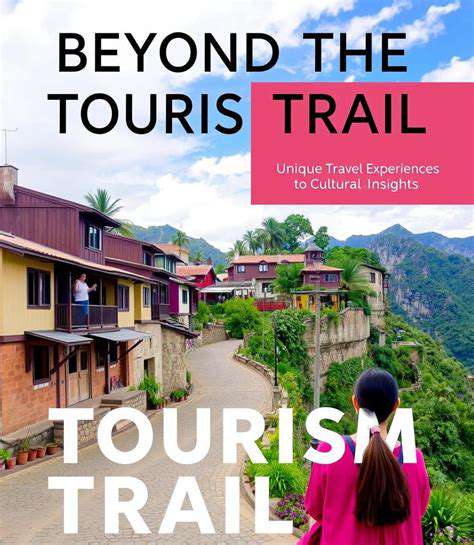

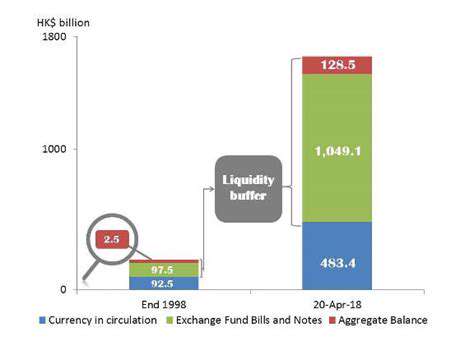



![How to Pack a Carry On Only [Minimalist Guide]](/static/images/27/2025-05/AccessoriesandDocuments3AKeepingitCompactandOrganized.jpg)


![Photography Gear for Travel [What to Pack]](/static/images/27/2025-05/PrioritizingPortabilityandProtection3APackingStrategically.jpg)
